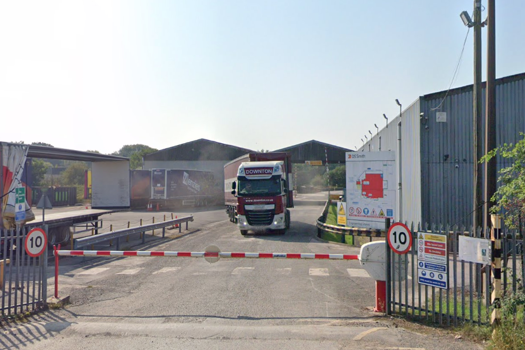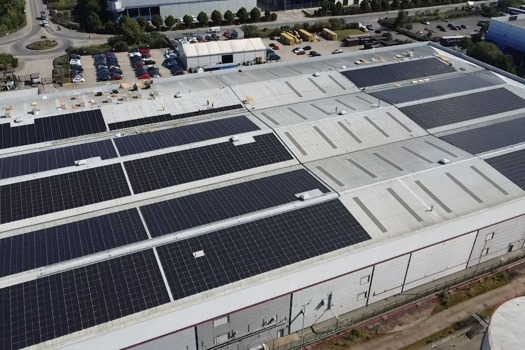What's in the box for print in 2010?

Last week's emergency Budget threw up a big test for the coalition, but printers may find it even harder to meet the challenges put forward by the government, writes Jez Abbott
Chancellor George Osborne put VAT and public-sector cuts at the heart of a budget he called the toughest for a generation. Printers, like the coalition, are split on just how tough that budget is and what it will mean for the industry in years to come. VAT will go up 2.5% to 20% in January and Osborne also increased capital gains tax for higher earners. He hit bankers with a £2.4bn levy, drew thousands of basic rate taxpayers into the higher 40% band and slashed welfare and public spending.
For a business-to-business printer like Jan Prokop, the change in VAT won’t hurt. However, the public sector cuts, which could leave 500,000 people jobless, are another thing. The managing director of Purbrooks in south-west London has mixed feelings about the plans. "The big cutbacks in the public sector could work in our favour," he says. "Though print demand, like marketing, may shrink, local authorities may have to shut down printrooms and outsource work. That could benefit private-sector printers, but it will depend on how each council goes about cutting back."
The flip-side of so many people losing their jobs, of course, is that confidence in the economy may flag, people will spend less and growth will flatten out. VAT, cut back to 15% last year and raised to 20% next year, makes no difference, argues Prokop, because the people hit hardest are those on benefits, "and they don’t buy print".
A problem of capital
Prokop believes the Budget will eventually claw back the national debt, but claims "it’s not that beneficial for us or smaller businesses". Securing finance is still a nightmare and nothing Osborne has announced will change that, he says. The problem, he points out, is not tax, but attracting cash to develop a business, recruit and expand.
"I wanted moves to encourage people to invest in their businesses; maybe extra allowances or quicker write-offs of equipment to offset against profits. Printing is capital-investment based and abroad you can write off kit much quicker. Nothing here makes me want to spend £250,000, and if you’re not investing, you’re treading water."
Stephen Metcalfe, director of Metlock Printers in Romford, accepts Prokop’s position, but the newly elected Tory MP insists this government’s Budget aims to support business. Shortcomings, such as the lack of carrots for investment, can be addressed in future budgets, and some of last week’s measures will do just that anyway, he claims.
"As a printer, I’m pleased he didn’t introduce VAT on zero-rated items, such as books. Cuts in corporation tax – 1% a year for the next four years – will encourage investment and raising the NI threshold by £21 per week will also help. This all says Britain is open for business," he argues, echoing the words of the chancellor.
Roger Severn, managing director of south London litho printer Aquatint BSC, is not so sure. Printers are often the "bellwethers" for what happens in the wider economy, he insists, often being "first hit and first out". Severn claims to have the distinct feeling that the economic downturn is going nowhere regardless of the Budget’s measures.
"I think the much-talked-about ‘double-dip’ recession has already happened," he explains. "Things were moving in the right direction, but have fallen back again. I don’t think this Budget will make much difference. Osborne seems to have focused most of the change on capital gains, which will not affect us as we are not looking to sell up."
Far from it, he is looking to attract investors and raise equity. "I dearly wanted a measure to make banks act more promptly," says Severn, who met with his financiers four months ago to talk about capital holidays and is still waiting to hear back. A minor plus is books stay free of VAT, good news for a man against a "tax on reading".
Mixed reactions
Several printers would not comment, which may not be a bad thing. One was so busy he "hadn’t even the time to digest the budget"; another was "stacked up with work"; while for a third lucky printer, "the Budget hasn’t even registered, I’ve been that busy".
John Gilmore, managing director of post-press manufacturer Autobond, falls into the same work category but finds time to say the Budget won’t break his stride. "We are very enthusiastic on whatever the government does. Gordon Brown robbed us silly for years and the new government had to bite the bullet. We export 90% of our stuff and the exchange rates make our kit inexpensive in Europe and the US. We’re working double days and overtime to get machinery out of the door. Budget, currency rates and the World Cup have ensured our high morale," he said, before England’s game against Germany on Sunday (27 June).
However, not everyone will enjoy high morale in the months to come, warns Andy Brown, BPIF corporate affairs director. VAT-free books will help, he says, while trimming corporation tax will improve national and international competitiveness, but there are hard times ahead.
"There are a few own goals, such as cutting investment allowances, which will hit manufacturing. Given that manufacturing is supposed to be a key driver of growth, cutting back isn’t so clever," he explains. "There are lots of scary things for print in all of this. There are assumptions about the level of spare capacity in the economy, inflation could climb and consumer demand could fall because of VAT. This will hit retail and packaging, while cutbacks in the public sector could hurt as it is a major consumer of print."
None of this bodes too well for Aquatint’s Severn as he looks for ways to expand: "Ha," he chuckles, "to invest you have to have money in the first place, so it’s not a great concern of mine at the moment."
THE BUDGET
Here are some of the key measures the coalition government prescribed in the emergency Budget last week in an effort to balance the books:
Business
Threshold at which employers start to pay National Insurance Contributions (NICs) will rise by £21 above inflation from April 2011. Meanwhile, business start-ups outside London, the South East, or the East of England will not have to pay NICs for their first year in business. Corporation tax will be cut by 1% per year over the next four years, reducing it to 24% by 2014/15. Meanwhile, corporation tax for small businesses, which was due to rise from 21% to 22%, will actually be cut to 20% from April 2011.
Spending cuts
Public sector spending is to be reduced by £83bn by 2014 – equating to 25% off all departmental budgets with the exception of the NHS and overseas aid. A comprehensive spending review due to be published on 20 October will dictate more precisely where the axe falls. Meanwhile, there will be a two-year pay freeze for public-sector staff on £21,000 or more, while former Labour work and pensions secretary John Hutton will lead a review of public sector pensions, which Nick Clegg has branded "unfair and unaffordable".
Tax hikes
Capital gains tax is to rise from 18% to 28% for higher-rate income tax payers, but the 10% rate for entrepreneurial business activities will be extended from the first £2m to the first £5m, potentially leading to an increase in private equity investors. VAT will rise from 17.5% to 20% from 4 January 2011. This will generate £13bn per year, while a balance sheet levy to be applied to banks and building societies is expected to generate a further £2bn annually.
Tax giveaways
Council tax will be frozen in 2011 and 2012, while the personal income tax allowance will initially rise by £1,000 to £7,475 and to £10,000 within the current parliament.
The economy
The newly formed Office for Budget Responsibility has reduced the economic growth forecast for 2011/12 to 2.3%, rising to 2.8% in 2012/13, and 2.9% the following year. It says public sector net borrowing is set to total £149bn this year, before falling to £116bn in 2011/12 and to £37bn by the end of the current parliament. Consumer Price Index inflation is forecast to fall from its current 3.4% to 2.7% by the end of this year. In addition, unemployment is predicted to peak at 8% this year, falling to 6.1% by 2015/16.








